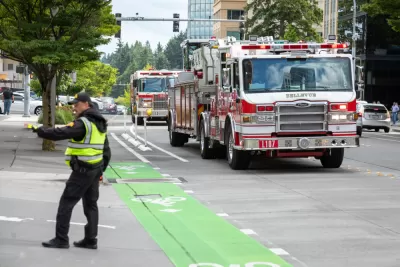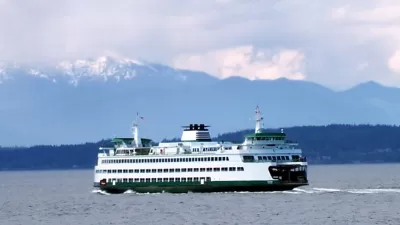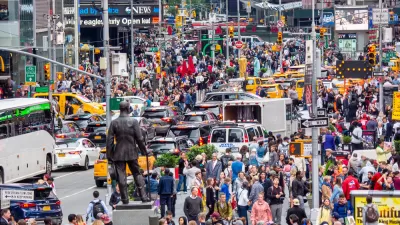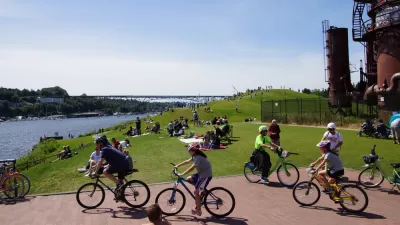Move Ahead Washington, a law approved by the Washington State Legislature earlier this year, is expected to have a huge effect on transportation planning and engineering on state-controlled roads.

Ryan Packer reports for The Urbanist on the details of the Move Ahead Washington law, also known as SB 5974, approved by the Seattle Legislature in March 2022. As explained by Packer, Move Ahead Washington is ambitious in its scope, requiring the Washington State Department of Transportation (WSDOT) to “identify gaps that exist in pedestrian or bike networks, and work with local jurisdictions to fill them” for every state transportation project that started design after July 1 of this year with a cost of over $500,000.
In the law’s own words, “In order to improve the safety, mobility, and accessibility of state highways, it is the intent of the legislature that the department must incorporate the principles of complete streets with facilities that provide street access with all users in mind, including pedestrians, bicyclists, and public transportation users…”
As noted by Packer, the law could have had a huge impacts on large projects completed before Move Ahead Washington took effect, such as the repaving of Seattle’s Lake City Way, also known as State Route 522. Other projects are already subject to the law’s mandate for complete streets, however, such as a project on the aging Omak Bridge across the Okanogan River in north-central Washington.
“Previously the bridge was planned to be refurbished and widened by removing sidewalks, with a separate pedestrian and bike bridge built just to the north. Now, in part due to this guidance, WSDOT is recommending a full replacement of the bridge with a bike and pedestrian facility included,” reports Packer.
FULL STORY: Washington Legislature Makes a Quantum Leap on Complete State Highways

Alabama: Trump Terminates Settlements for Black Communities Harmed By Raw Sewage
Trump deemed the landmark civil rights agreement “illegal DEI and environmental justice policy.”

Study: Maui’s Plan to Convert Vacation Rentals to Long-Term Housing Could Cause Nearly $1 Billion Economic Loss
The plan would reduce visitor accommodation by 25% resulting in 1,900 jobs lost.

Planetizen Federal Action Tracker
A weekly monitor of how Trump’s orders and actions are impacting planners and planning in America.

Wind Energy on the Rise Despite Federal Policy Reversal
The Trump administration is revoking federal support for renewable energy, but demand for new projects continues unabated.

Passengers Flock to Caltrain After Electrification
The new electric trains are running faster and more reliably, leading to strong ridership growth on the Bay Area rail system.

Texas Churches Rally Behind ‘Yes in God’s Back Yard’ Legislation
Religious leaders want the state to reduce zoning regulations to streamline leasing church-owned land to housing developers.
Urban Design for Planners 1: Software Tools
This six-course series explores essential urban design concepts using open source software and equips planners with the tools they need to participate fully in the urban design process.
Planning for Universal Design
Learn the tools for implementing Universal Design in planning regulations.
Caltrans
Smith Gee Studio
Institute for Housing and Urban Development Studies (IHS)
City of Grandview
Harvard GSD Executive Education
Toledo-Lucas County Plan Commissions
Salt Lake City
NYU Wagner Graduate School of Public Service





























